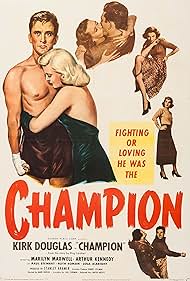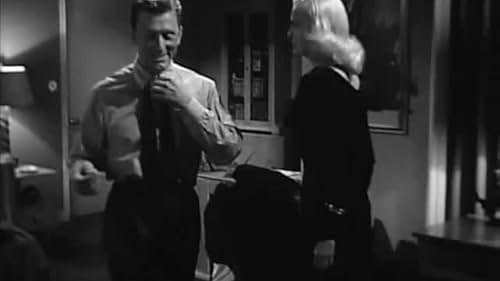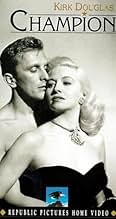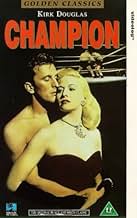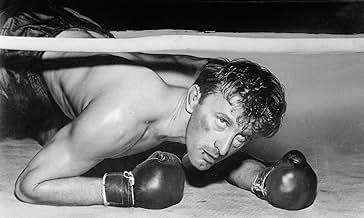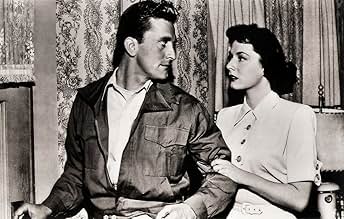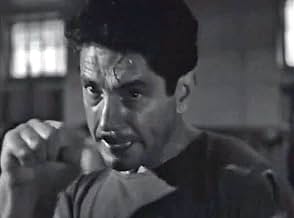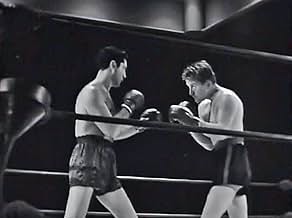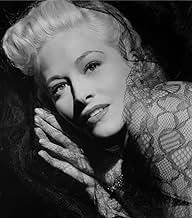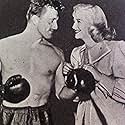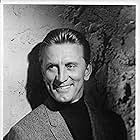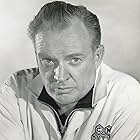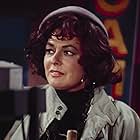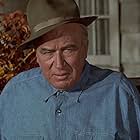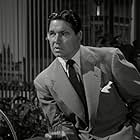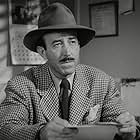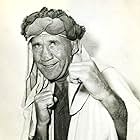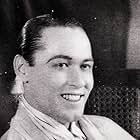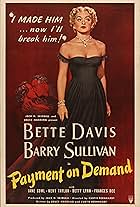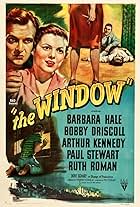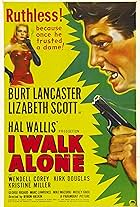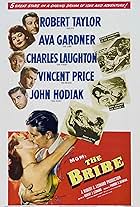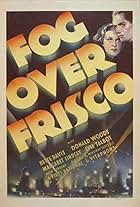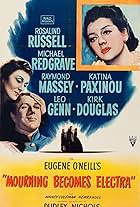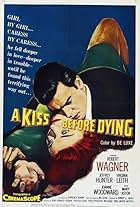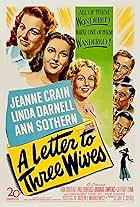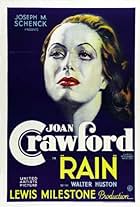Boxer Midge Kelly rises to fame...mainly by stepping on other people.Boxer Midge Kelly rises to fame...mainly by stepping on other people.Boxer Midge Kelly rises to fame...mainly by stepping on other people.
- Won 1 Oscar
- 2 wins & 9 nominations total
John Daheim
- Dunne
- (as John Day)
Bill Baldwin
- Bill Brown - Ringside Broadcaster
- (uncredited)
Sam Balter
- Championship Fight Announcer
- (uncredited)
Polly Bergen
- Radio and Jukebox Singer
- (voice)
- (uncredited)
Don Brodie
- Newspaper Reporter
- (uncredited)
Ralph Brooks
- Newspaper Reporter at Benefit
- (uncredited)
Mushy Callahan
- Referee Title fight
- (uncredited)
Sayre Dearing
- Newspaper Reporter at Benefit
- (uncredited)
- Director
- Writers
- All cast & crew
- Production, box office & more at IMDbPro
Storyline
Did you know
- TriviaKirk Douglas reached stardom after Champion (1949) was released. He was very fond of this movie, until he died.
- GoofsMidge mangles the sculpture that Palmer has made of him, twisting the head out of alignment. In next shot, the head of statue is back in its original location.
- Crazy creditsThe opening credits appear over clips of a crowd at one of Kelly's prize fights.
- Alternate versionsAlso available in a computer-colorized version.
- ConnectionsFeatured in The Dick Cavett Show: Kirk Douglas (1971)
- SoundtracksNever Be It Said
Written by Dimitri Tiomkin and Goldie Goldmark (as "Goldie" Goldmark)
Sung by Polly Bergen (uncredited)
Featured review
Mark Robson's (`Bridges at Toko-Ri' `Von Ryan's Express' `Earthquake') 1949 fight film `Champion' is one of the best depictions ever filmed of the fight game. This film is more than just a movie about a boxer, or just another rags to riches/American dream story, but rather a deep character study of man driven to succeed at any cost.
The man is Midge Kelly played brilliantly by Kirk Douglas. Midge's trek from train hopping hobo to dishwasher to prize fighting champion is realistically portrayed in a style that is not unlike Kirk's son Michael's portrayal of Wall Street businessman Gordon Gekko in `Wall Street.' Family, friends, lovers all better steer clear of Midge as nothing is going to intimidate or stop him.
Two other actors are very worthy of mention here; Arthur Kennedy and Paul Stewart. The able Kennedy (`Cheyenne Autumn' `Lawrence of Arabia' `Nevada Smith') plays Midge's honest and idealistic brother, Connie. His role in `Champion' earned him one of his five Oscar nominations. Paul Stewart (`12 O'clock High' `Kiss Me Deadly' `The Joe Louis Story') does a great job of depicting Midge's first manager, Tommy Haley. Besides these two and Douglas I found most of the acting to be typical of the era, overdone.
Lastly, it should be noted that this film one won Oscar; the 1949 award for editing went to editor Harry Gerstad (who also won for `High Noon.') The brilliantly filmed fight scenes are cut in a manner that adds a lot of impact to what is going on in the ring and in the arena. It is safe to say that Martin Scorsese and his editor, Thelma Schoonmaker had seen this film a number of times and borrowed from Gerstad's fight scene editing techniques in `Raging Bull,' which is the one boxing film I would rate higher than `Champion.' Forget Rocky Balboa remember Midge Kelly and Jake LaMotta.
The man is Midge Kelly played brilliantly by Kirk Douglas. Midge's trek from train hopping hobo to dishwasher to prize fighting champion is realistically portrayed in a style that is not unlike Kirk's son Michael's portrayal of Wall Street businessman Gordon Gekko in `Wall Street.' Family, friends, lovers all better steer clear of Midge as nothing is going to intimidate or stop him.
Two other actors are very worthy of mention here; Arthur Kennedy and Paul Stewart. The able Kennedy (`Cheyenne Autumn' `Lawrence of Arabia' `Nevada Smith') plays Midge's honest and idealistic brother, Connie. His role in `Champion' earned him one of his five Oscar nominations. Paul Stewart (`12 O'clock High' `Kiss Me Deadly' `The Joe Louis Story') does a great job of depicting Midge's first manager, Tommy Haley. Besides these two and Douglas I found most of the acting to be typical of the era, overdone.
Lastly, it should be noted that this film one won Oscar; the 1949 award for editing went to editor Harry Gerstad (who also won for `High Noon.') The brilliantly filmed fight scenes are cut in a manner that adds a lot of impact to what is going on in the ring and in the arena. It is safe to say that Martin Scorsese and his editor, Thelma Schoonmaker had seen this film a number of times and borrowed from Gerstad's fight scene editing techniques in `Raging Bull,' which is the one boxing film I would rate higher than `Champion.' Forget Rocky Balboa remember Midge Kelly and Jake LaMotta.
- How long is Champion?Powered by Alexa
Details
Box office
- Budget
- $600,000 (estimated)
- Runtime1 hour 39 minutes
- Color
- Aspect ratio
- 1.37 : 1
Contribute to this page
Suggest an edit or add missing content

